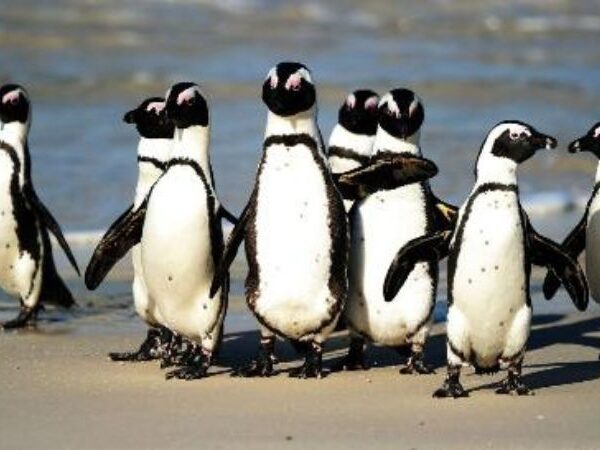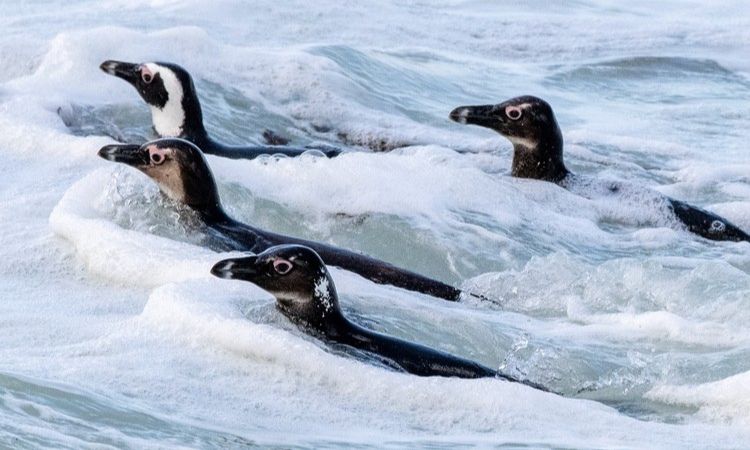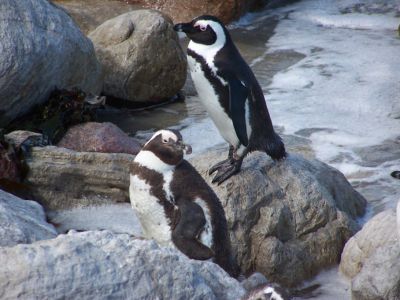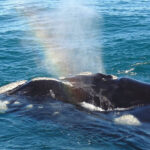
From millions of African Penguins in the early 1900s, there are now only about 8,000 breeding pairs left. It is official: the African Penguin, the continent’s only penguin species, is now considered “critically endangered”. “If we don’t act timeously, we could lose Africa’s only penguin species within our lifetime,” an expert warns.
The International Union for the Conservation of Nature (IUCN)has elevated the bird’s risk of extinction status to “critically endangered, a decision announced on Monday28 October 2024.
There are 18 penguin species globally, and the iconic African Penguin is the first to meet the criteria for this classification – just one rank below the “extinct in the wild” category.The African Penguin has been raised from “endangered” to “critically endangered” because its population is undergoing an extremely rapid decline, mainly due to the encroaching demands on its food source.
 Apart from these food shortages, other contributing factors to the decline in the African Penguin population is the historic egg collection and guano harvesting on their breeding islands, oil pollution, increased maritime traffic as well as competition with and predation by Cape fur seals.
Apart from these food shortages, other contributing factors to the decline in the African Penguin population is the historic egg collection and guano harvesting on their breeding islands, oil pollution, increased maritime traffic as well as competition with and predation by Cape fur seals.
BirdLife South Africa and the SA National Foundation for the Conservation of Coastal Birds (SANCCOB) are currently in legal proceedings with the South African national government over the establishment of closed fishing zones around penguin breeding areas. These zones are crucial for African penguins, as they protect the birds’ primary food sources—anchovies and pilchards—from the pelagic fishing industry, which competes for the same resources.
 Since the IUCN’s decision on the species’ conservation status was highlighted, it was emphasized that this situation reflects a much larger environmental health issue.
Since the IUCN’s decision on the species’ conservation status was highlighted, it was emphasized that this situation reflects a much larger environmental health issue.
“Despite being well-known and studied, these penguins are still facing extinction, showing just how severe the damage to our ecosystems has become. If a species as iconic as the African Penguin is struggling to survive, it raises the question of how many other species are disappearing without us even noticing. We need to act now – not just for penguins, but to protect the broader biodiversity that is crucial for the planet’s future,” says Dr. Richard Sherley, an African penguin researcher at the University of Exeter,
Economic asset

The African Penguin is a significant economic asset possibly worth billions to South Africa’s tourism economy annually according to a new report released just before the announcement.
Overall, the report estimated the total value that the African Penguin created for South Africa in 2023 was between R2 billion and R4.5 billion with the Boulders colony near Simon’s Town generating some R95-million in revenue from entrance fees alone.
A secondary but important benefit of African Penguin awareness is the emotional value that people receive just from knowing of the continued existence of wild African Penguin colonies, irrespective of whether they aim to ever visit them. This existence value benefit is expressed through their stated “willingness to pay” to ensure the birds’ conservation.
Bottomline:
In its response, the Endangered Wildlife Trust says the report’s findings underscore the urgent need for targeted conservation measures that protect the African Penguin species and maintain the benefits they provide.
_________________________________
“Waddle this way: Uncovering the fascinating facts about African Penguins”
Did you know that African Penguins, also known as Black-footed Penguins, are the only species of penguins found on the continent of Africa? These charismatic creatures are not only adorable but also have some interesting facts that will surprise you.
One fascinating fact about African Penguins is that they have a unique way of communicating with each other. They bray like donkeys to greet and attract potential mates, which can be quite a comical sight to witness. In addition, these penguins are also known for their impeccable parenting skills. Both the male and female take turns caring for their eggs and chicks, showing equal dedication to their offspring.
Despite their charming appearance, African Penguins are under threat due to factors such as overfishing, pollution, and habitat destruction. Their population has declined significantly over the years, making conservation efforts crucial to their survival.
If you ever have the chance to visit Africa, be sure to stop by the coast to catch a glimpse of these remarkable creatures in the wild. Your heart will surely melt as you watch them waddling around and taking refreshing swims in the ocean.
So, the next time you come across a picture of these adorable penguins, remember the fascinating facts about African Penguins that make them truly special. Let’s continue to raise awareness and support conservation efforts to ensure that these remarkable animals can thrive for generations to come.




